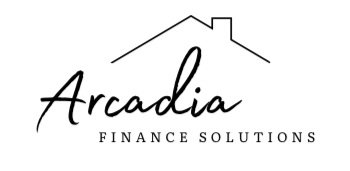Investing in Property: A guide to build your investment portfolio
As you hit your 30s, 40s, and 50s, financial security becomes more important than ever. For many Australians, investing in property is one of the best ways to build wealth, secure passive income, and set yourself up for a comfortable retirement. But buying an investment property isn’t a decision to take lightly.
At Arcadia Finance Solutions, we’ve been helping people build property portfolios for almost 20 years. Here’s what you need to know if you’re thinking about purchasing an investment property.
1. Why Invest in Property?
Property investment is popular for good reason. Here’s why it can be a smart move:
Potential for Capital Growth: Over time, property values tend to increase, allowing you to benefit from capital appreciation.
Rental Income: Your investment property can provide you with a steady stream of rental income, helping you pay off your mortgage or supplement your lifestyle.
Tax Benefits: You may be eligible for tax deductions on expenses like interest, property management fees, and maintenance costs, potentially lowering your taxable income
Control Over Your Investment: Unlike shares, property gives you control over the asset. You can make decisions about renovations, tenants, and how to manage your investment.
2. Location is Key
The old adage, “location, location, location” holds true when it comes to property investment. Where you buy will have a big impact on your property’s value and rental potential.
When researching suburbs, look for:
Strong rental demand: Areas with high rental demand and low vacancy rates will provide consistent income.
Population growth: Areas experiencing population growth often see rising property prices
Infrastructure and amenities: Proximity to schools, public transport, shopping centres, and parks can make your property more attractive to tenants.
3. Understand Your Numbers
Before purchasing an investment property, it’s important to get your numbers right. This includes understanding how much you can afford to borrow, what your rental income might be, and the ongoing costs of maintaining the property.
Make sure to consider:
Loan repayments: Will the rental income cover your mortgage? If not, do you have the financial buffer to cover the shortfall?
Ongoing costs: Property management fees, maintenance, insurance, council rates, and strata fees (if buying an apartment).
Tax implications: Negative gearing, depreciation, and other tax benefits can make a big difference in your overall returns. Speak to your accountant to fully understand the impact.
4. Choosing the Right Loan
Not all loans are created equal, especially when it comes to investing. The type of loan you choose can have a big impact on your cash flow and long-term investment success.
Some options to consider:
Interest-only loans: Many investors choose interest-only loans to keep repayments lower, especially in the early years. This can free up cash flow, though you’ll need a plan to pay down the principal eventually.
Fixed vs. variable rate loans: A fixed-rate loan provides certainty in your repayments, while a variable-rate loan gives you flexibility if interest rates drop.
Offset accounts: These accounts allow you to reduce interest payments on your loan by offsetting your savings against the loan balance.
We are here to guide you through these options and tailor a loan to meet your investment needs.
5. Protect Your Investment
Once you’ve secured your investment property, protecting it is crucial. That means making sure you have the right insurance in place, including:
Landlord insurance: Protects you against tenant-related issues, such as unpaid rent, property damage, or legal liability.
Building insurance: Covers the physical structure of the property in the event of damage from storms, fire, or other hazards.
Income protection insurance: Ensures that if something happens to you, you can still cover your mortgage and other expenses.
In addition to insurance, it’s a good idea to engage a reliable property manager to handle tenant selection, rent collection, and maintenance. This can help protect your investment and ensure everything runs smoothly.
6. Think Long-Term
Property investment is not a “get rich quick” scheme—it’s a long-term strategy. The property market can experience ups and downs, but holding onto your investment over the long term can increase your chances of seeing significant capital growth.
A solid investment strategy considers both short-term cash flow and long-term capital growth..
Ready to Invest?
Buying an investment property is a great way to build wealth and create financial security, but it’s important to approach it with the right strategy. At Arcadia Finance Solutions, we’re here to guide you through the lending process.
Whether you’re a seasoned investor or just starting out, our 20 years of experience in the industry means we can offer expert advice tailored to your unique financial situation. Ready to take the next step? Contact us today to discuss your investment property goals.
